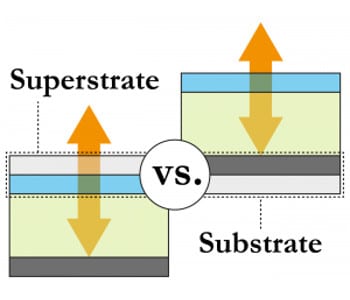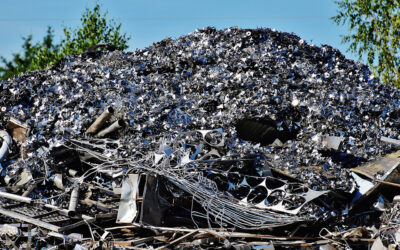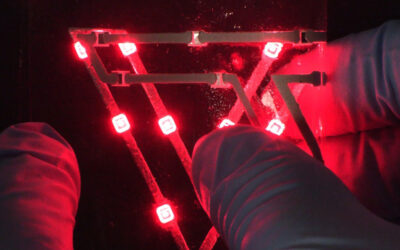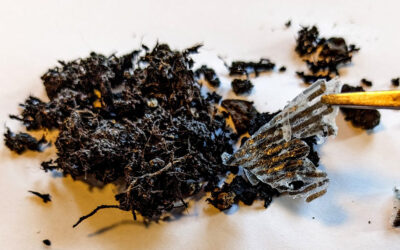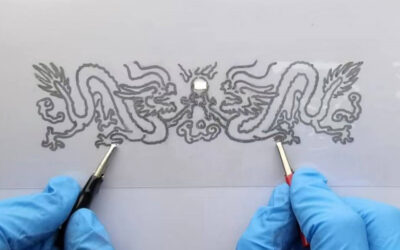A team of researchers from the Technical University of Denmark promises to revolutionise the fabrication methods in optoelectronics in a study published in the new journal Advanced Science.
Scientists from the Technical University of Denmark, led by Professor Frederick C. Krebs, have developed a fast, simple and non-expensive method to produce high-performing optoelectronic devices. In the study published in Advanced Science, the proposed fabrication procedure aims to trigger further developments in the already well established field of organic electronics.
The study focuses on improving the fabrication methods of conductive carrier structrures (substrates and superstrates) in optoelectronic devices. Most current fabrication techniques in optoelectronics use carriers containing indium tin oxide (ITO) to achieve highly efficient devices. However, this material is expensive and unflexible. Even though flexibility is not a necessary feature in the final product, the use of flexible carriers could be highly beneficial for the manufacturing processes.
In looking for viable alternatives, the authors of this study were inspired by the promise of low cost roll-to-roll methods and by the need of solutions that can be easily translated into wide industrial use. Their new method consists in preparing carriers completely through scalable, solution-based roll-to-roll processes using additive printing and coating techniques.
The team shows that, unlike what happens with the broadly used ITO, producing optoelectronic devices with flexible carriers via all-additive fabrication routes makes way for simpler and fewer manufacture steps, and less material waste, while achieving similar or even superior perfomances. Possible materials and the few necessary production steps are provided in detail.
 An even more exciting prospect, Prof. Krebs says, “is the possibility for further process intensification through combination of properties in clever ink design. Several functionalities packed into the same ink allows for everything we came for in just one step (rather than many) thus steeply accelerating usefulness.”
An even more exciting prospect, Prof. Krebs says, “is the possibility for further process intensification through combination of properties in clever ink design. Several functionalities packed into the same ink allows for everything we came for in just one step (rather than many) thus steeply accelerating usefulness.”
Acknowledging that the industry has invested heavily in the previously available optoelectronics production methods, the authors hope that the sustainability inherent to this work will have a positive and appealing impact: “The positive focus should go to and explore application in areas that have an immediate benefit for society and a place in the market, without competing with what is already there.”
At the end of the study, the readers are invited “to test the available superstrates and substrates for their application and improve subsequent processes.” The team’s excitement over the potential impact of this new work in the advancement of optoelectronics is palpable in the words of Prof. Krebs: “The solution we offer here is more than a glimpse of the future, it is real!”
Find out more about this new method and other studies on the Advanced Science website.
Frederik C. Krebs is currently professor and Head of Section for Solar Energy at the Technical University of Denmark with research focus on flexible organic electronics and foil based systems, their manufacture and processing.

